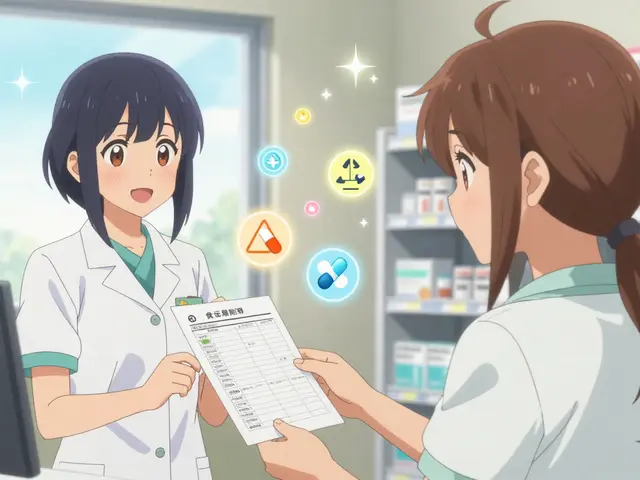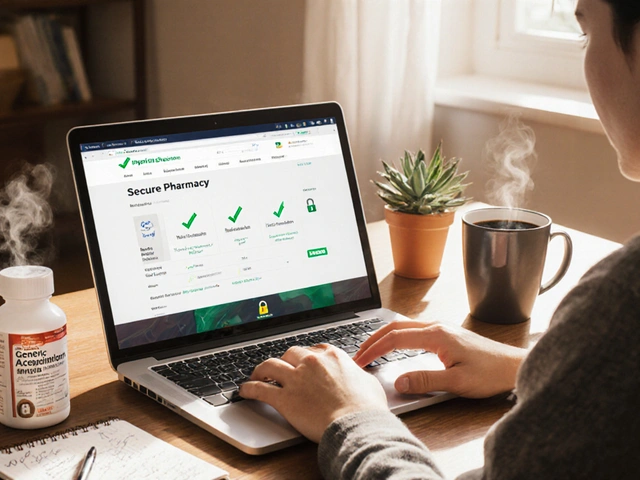Patient Management: Practical Medication & Care Tips
Managing meds and care can feel overwhelming. Where do you start when a prescription changes, side effects pop up, or you need a cheaper source? This page pulls together clear, practical steps you can use today.
Treat medication like a team effort. Keep a simple list with drug names, doses, why you take them, and when you last refilled. Share that list with every clinician and pharmacy. If a doctor suggests switching antibiotics or antidepressants, ask why, what side effects to watch for, and how long before you expect changes. Good questions reduce surprises.
Watch for common red flags. New rashes, sudden weight change, worsening breathing, or major mood swings should prompt a call to your provider. For antibiotics, note allergic reactions and digestive issues. For antidepressants and antipsychotics, watch sleep, appetite, and mood shifts. Don’t ignore symptoms just because they seem minor.
Buying meds online? Be cautious. Prefer licensed pharmacies that require a prescription and show contact info. Avoid sites that sell controlled meds without a doctor’s order. Read recent customer reviews, check for a real pharmacy license, and ask your pharmacist if a cheaper generic exists. When in doubt, call your local clinic.
Switching drugs requires planning. If amoxicillin fails or causes side effects, alternatives exist but choices depend on the infection and allergies. The same applies to antidepressants—each drug has tradeoffs. Never stop or switch without talking to your prescriber. Ask about tapering, overlapping treatments, and what to expect in the first weeks.
Simple habits lower risks. Use a pill organizer, set alarms, and keep all meds in their original bottles so you always have dosing instructions. Store antibiotics and supplements away from heat and moisture. Track side effects in a quick note app so you can show patterns to your clinician.
When chronic conditions overlap, coordinate care. COPD, heart disease, stroke risk, and dementia often interact. Share test results across specialists and ask which meds help multiple issues and which might conflict. A single clinician or a pharmacist can often spot drug interactions you might miss.
Supplements matter too. Tell your provider about herbs or oils like Calanus, tansy, or Calcium D-Glucarate. Some supplements change how drugs work or add side effects. If a supplement promises big changes, ask for proof and a safety check.
Emergency signs need quick action. Difficulty breathing, severe rash, chest pain, sudden confusion, or fainting require immediate care. For non-urgent concerns, schedule a med review every six months or after any new diagnosis.
Before appointments bring your list, recent lab values, and a symptom log. Ask about cheaper generics, patient assistance, or mail-order programs. If a recommended online pharmacy looks risky, get the drug name and ask your clinic for verified suppliers to avoid counterfeit or unsafe products.
Start small: make your med list, pick one storage habit to improve, and call your clinic with one clear question this week. Patient management gets easier with steady steps, clear communication, and a pharmacist you trust.
The role of pharmacists in managing Ledipasvir therapy for Hepatitis C patients
In my recent exploration, I've discovered the significant role pharmacists play in managing Ledipasvir therapy for Hepatitis C patients. They are essential in guiding patients through the treatment process, ensuring they understand how to take their medication correctly to maximize its effectiveness. They closely monitor patients' response to the therapy, adjusting dosages when necessary, to reduce side effects. Additionally, pharmacists provide important advice on lifestyle changes to support the therapy. Their support and guidance are invaluable for patients battling Hepatitis C.
About
Health and Medicine
Latest Posts


How to Confirm Allergies and Interactions at Medication Pickup: A Step-by-Step Guide for Patients and Pharmacists
By Marcel Kornblum Jan 8, 2026

Buy Cheap Generic Acetaminophen Online - Safe Tips & Best Sources
By Marcel Kornblum Sep 28, 2025

Fulvicin (Griseofulvin) vs. Top Antifungal Alternatives: What Works Best Today
By Marcel Kornblum Oct 30, 2025

